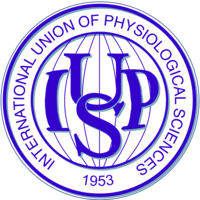Latest Articles
A digital twin in the form of a whole-body physiologically based pharmacokinetic (PBPK) model of glimepiride was developed to systematically evaluate the influence of patient-specific factors on drug disposition. Based on curated data from 20 clinical studies, the model simulates the absorption, distribution, metabolism and excretion (ADME) of the drug while accounting for variability in renal and hepatic function, CYP2C9 genetic variants and bodyweight. The model is implemented in the Systems Biology Markup Language (SBML) standard and simulations are perormed using scripts that utilise the libRoadRunner library to run simulations and generate results. Here, we demonstrate the computational reproducibility of the key findings from the primary publication, thereby verifying the consistency and reproducibility of the model implementation with the published results.
A digital twin in the form of a whole-body physiologically based pharmacokinetic (PBPK) model of glimepiride was developed to systematically evaluate the influence of patient-specific factors on drug disposition. Based on curated data from 20 clinical studies, the model simulates the absorption, distribution, metabolism and excretion (ADME) of the drug while accounting for variability in renal and hepatic function, CYP2C9 genetic variants and bodyweight. The model is implemented in the Systems Biology Markup Language (SBML) standard and simulations are perormed using scripts that utilise the libRoadRunner library to run simulations and generate results. Here, we demonstrate the computational reproducibility of the key findings from the primary publication, thereby verifying the consistency and reproducibility of the model implementation with the published results.
This work presents an energy-based modelling framework and presented two exemplar bond graph templates for solute carrier (SLC) transporter families, facilitated diffusion with SLC2A2 (GLUT2) and sodium-glucose cotransport with SLC5A1 (SGLT1).
This work presents an energy-based modelling framework and presented two exemplar bond graph templates for solute carrier (SLC) transporter families, facilitated diffusion with SLC2A2 (GLUT2) and sodium-glucose cotransport with SLC5A1 (SGLT1).
This work studies neural regulation, by simulating the membrane potential oscillations due to phasic slow wave activity and resulting active tension generation within distal gastric interstitial cells of Cajal and smooth muscle cells.
This work studies neural regulation, by simulating the membrane potential oscillations due to phasic slow wave activity and resulting active tension generation within distal gastric interstitial cells of Cajal and smooth muscle cells.
Physiome publishes mathematical models of physiological processes where the experimental details have been published or accepted for publication in a recognised ‘primary’ peer-reviewed journal in the field of physiological modelling. A Physiome article thus provides a citable link between the published model and its implementation.
The aim is to confirm the reproducibility and reusability these published models. Therefore, Physiome editors will help as much as is currently possible with model curation and annotation to ensure that the modeling results claimed in the primary paper are consistent with the published model.
Physiome curators will also help authors ensure that models and simulation experiments are made available using appropriate community standards prior to acceptance for publication. When aspects of a computational modelling study are not able to be encoded in standard formats, Physiome curators will help authors ensure their work is as open, reproducible, and reusable as possible.
Physiome is open access with a low Author Processing Charge. All Physiome articles are available on figshare including details on the implementation.





